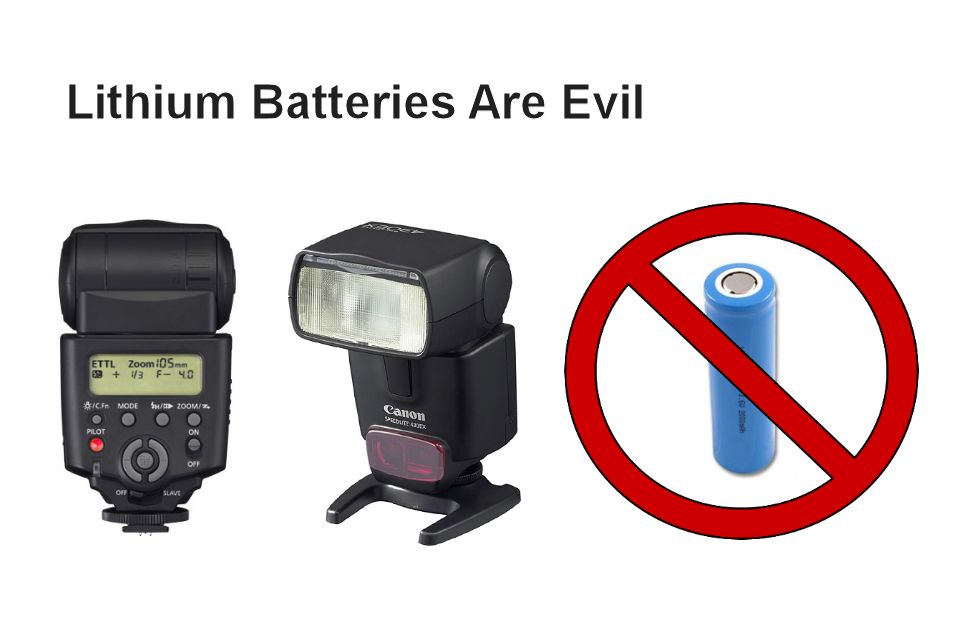Lithium Batteries Are Evil
I thought I would share a “technical incident” I experienced the other week. I had a bad experience using Lithium batteries in my Canon Speedlight 430EX flash. In short, I don’t recommend using lithium batteries in your flash. Of course, YMMV, but I won’t use them anymore.
I put four Energizer “advanced lithium” batteries in my 430EX flash for the first time to shoot my niece’s wedding all weekend and it went well. Very well actually as I loved that the batteries lasted all weekend and the unit appeared to recharge very quickly. I could rapid fire flashes with almost no recharge wait. So, what’s the problem?
Well the next week, I started shooting some with the same flash and batteries then the following:
- Camera, 5D Mk II started acting flaky. I was in Manual mode but I couldn’t put the shutter faster than 200. Spun my dial, back to manual, all ok. Then it started again. Other odd flaky behaviors too.
- I couldn’t change any settings on the flash, shut it off, on, then could make some changes
- Inconsistent recharge times
- Clearly something was really wrong with my camera and flash unit
I though the batteries were dying so I popped them out and — no kidding, they were so freaking hot!! They weren’t hot enough to blister my hand but pretty darn close and my hand stung for a few days. I then swapped them out for some Alkaline batteries I had in my bag, but they were near death so I only got a shot or two off with them but the camera and flash appeared to be working. At home, I checked the lithium batteries on a tester afterward and they are still strong but put out 1.73 volts each although they are spec’d at 1.5v. So using the Google, I found that lithium batteries have a spotty reputation for overheating and in some cases, according to some posters, actually melted the plastic in their flash units.
What does Canon say about lithium batteries? Well there is some confusion. From the flash manual:
- Size-AA Ni-MH or lithium batteries can also be used
- To avoid overheating and deteriorating the flash head, do not fire rapid bursts of more than 20 continuous flashes. After 20 continuous flashes, allow a rest time of at least 10 min.
From their technical support representative after I sent them an email describing my situation:
- “Lithium batteries do get hotter than alkaline or Nickel-metal Hydride (NiMh) batteries. I do not recommend lithium batteries for this reason. This may explain the “flaky” symptoms you are describing.”
Use Rechargeable Nickle-Metal Hydride Batteries
So, I don’t recommend using Lithium batteries in your flash despite their superior performance with longevity and flash recharge speed. I now use the new rechargeable Ni-Mh and use their special and required chargers. I use a small, Sony charger and battery set. I purchased a second set of Energizer NiMh batteries so I have one set in the flash and the other in a charger at all times. I find Ni-Mh batteries to be economical but frankly, I get better performance and longevity from simple throw away alkaline batteries. YMMV.
If you purchase NiMh batteries, make sure you get their special charger as other chargers can damage these batteries. Also get batteries that have the highest milliamp hour rating you can find. My Energizers are rated for 2450mAh but you can get higher outputs.
The Google is your friend when it comes to batteries for flash recommendations so I don’t want to endorse any one brand or type except to share my very strong concern using lithium batteries. Using lithium batteries gave me fantastic performance and caused my flash and camera to malfunction. Not recommended.



